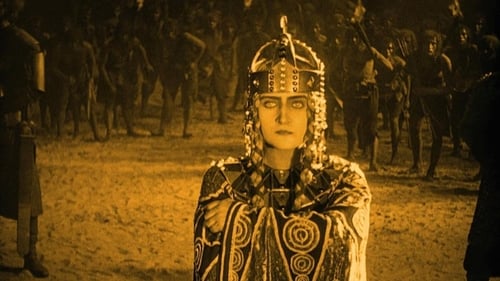
Markurell, Gastwirt
About the wealthy Mr Markurell and his son, Johan, who is closing in on his graduation, and their life in the city of Wadköping. German language version.

Jean Baptiste Gunderloch

Writer

Hans Sachs

Johann Michael
A dedicated firefighter is forced to retire after an injury.

Andreas Weiler
A hunter is hired by a count to track down a poacher who has been killing deer on his estate.

Owe Heiken
Hinrich, the son of a feudal German landowner, falls in love with the beautiful daughter of one of his father's serfs despite opposition from both families. But when he actually offers marriage to her, this is going too far. The return of his brother Detlev, with an unscrupulous aristocratic bride of his own and a rival claim to their father's estates, proves to be the trigger for tragedy.

Margrave Rüdiger von Bechlarn
의 2부로 크림힐트가 훈족의 여왕이 되어 지그프리트의 복수를 하는 과정을 그리고 있다. 크림힐트는 지그프리트를 죽인 하겐과 브룬힐트 일족을 자기 성으로 끌어 들여 피 어린 복수전을 시작한다. 1922년부터 23년까지 9개월간 UFA의 바벨스부르크 스튜디오에서 제작된 이 영화는 당시 1,2부로 나누어 양일에 걸쳐 개봉되어 큰 성공을 거두었다. 이전작품과 다른 대작을 연출해야 했던 프리츠 랑 감독은 아내인 테아 폰 하르보와 촬영감독 칼 호프만, 예술감독 오토 훈테, 칼 폴브레히트와 독일 특유의 감성어린 웅장하고 비극적인 걸작을 만들었다. 상징주의와 독일 표현주의 양식이 드러난 이 영화는 에이젠슈타인의 에 영향을 끼쳤다고 한다.

Ruediger von Bechlarn
네덜란드의 왕자 지그프리트는 군터 왕을 만나러 가던 중 거대한 용을 만난다. 용을 무찌른 지그프리트는 용의 피를 뒤집어 쓰고 불사신이 되고, 난쟁이의 도깨비 감투도 손에 넣는다. 이후 군터 왕을 만난 지그프리트는 그의 여동생 크림힐트와의 결혼을 요청하고, 군터는 자신이 아이슬랜드의 여왕 브룬힐트와 결혼할 수 있도록 도와주면 결혼을 허락하겠노라고 한다. 브룬힐트와 결혼하기 위해서는 그녀와의 대결에서 이겨야만 했는데, 군터는 지그프리트의 힘을 이용한 것이다. 대결에서 이긴 군터는 브룬힐트와 결혼하고 지그프리트와 크림힐트도 결혼하지만, 속임수로 자신을 이겼음을 알게 된 브룬힐트는 크게 분노하고 지그프리트를 죽일 음모를 꾸민다.

A Glass of Water (German: Ein Glas Wasser) is a 1923 German silent historical film directed by Ludwig Berger and starring Mady Christians, Lucie Höflich and Hans Brausewetter. It premiered at the UFA-Palast am Zoo on 1 February 1923. It was based on a play of the same title by Eugène Scribe, set in England during the reign of Queen Anne. The film was very well received both commercially and critically on its release. It is considered one of the milestones of Weimar cinema





